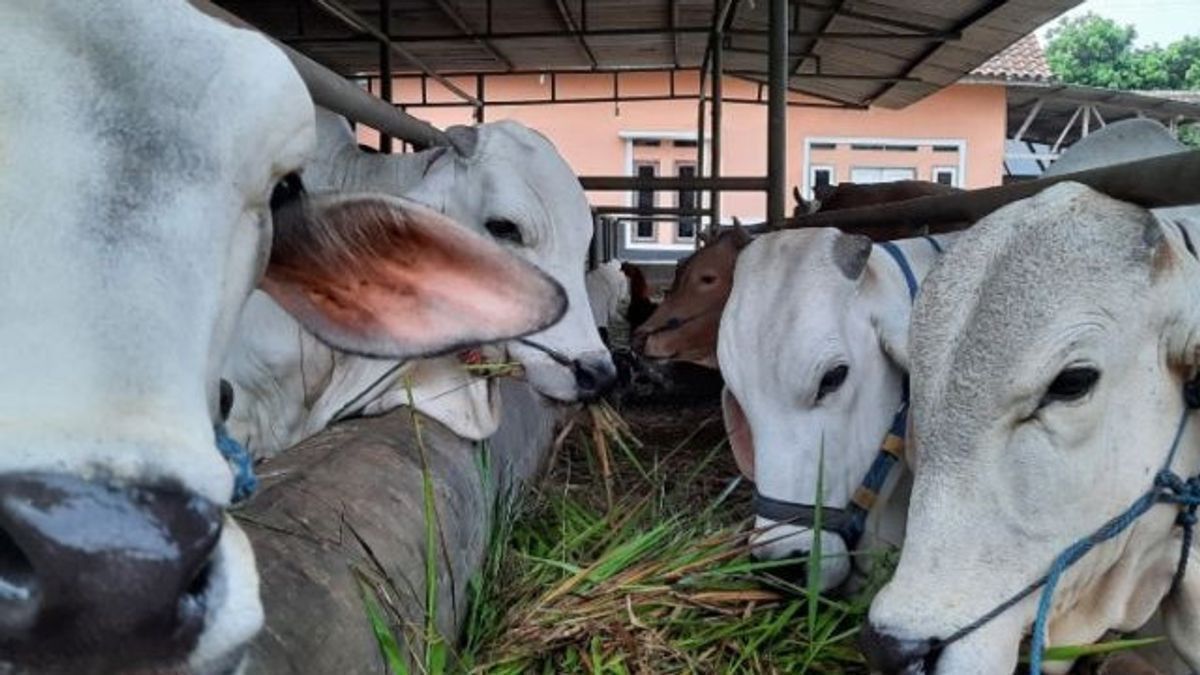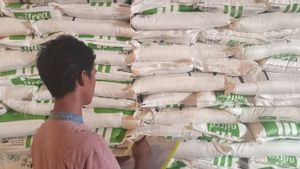JAKARTA - The DKI Jakarta Provincial Government has asked the public to be aware of the disease of sacrificial animals in addition to mouth and nail disease (PMK) and lumpy skin disease (LSD), but also peste de petits ruminant (PPR).
The DKI Food, Maritime and Agricultural Security Service (DKPKP) explained that PPR disease cannot attack humans but is dangerous for small ruminant animals such as goats and sheep.
"In February 2021, Thailand will become the first PPR infected country in Southeast Asia. Therefore, early vigilance is needed to prevent this disease from spreading to Indonesian territory," wrote the Instagram account dkpkp.jakarta, quoted on Saturday, June 18.
PPR in animals is usually transmitted through market trade, where animals infected with this disease transmit the virus to nearby animals.
"(PPR) has the potential to spread to goats and sheep through tear fluids, nose, droplets when coughing and sneezing, as well as through contaminated feed, drink and bases of cages," he explained.
The clinical symptoms of PPR in animals include high fever with a temperature of 40 to 42 degrees Celsius, reddish gums, melting of the eyes and nose, then severe diarrhea of liquid until death continued within 4-5 days.
Then, there are also open wounds in the oral cavity accompanied by melting of saliva, inflammation of the eyelids, cough, and shortness of breath.
"What must be done to prevent PPR. First, maintain cleanliness and sanitation of the cage. Second, separate animal suspect from other animals. Third, report to the KPKP Service officers if they find sick goats/sheeps/dead," he wrote.
The English, Chinese, Japanese, Arabic, and French versions are automatically generated by the AI. So there may still be inaccuracies in translating, please always see Indonesian as our main language. (system supported by DigitalSiber.id)













